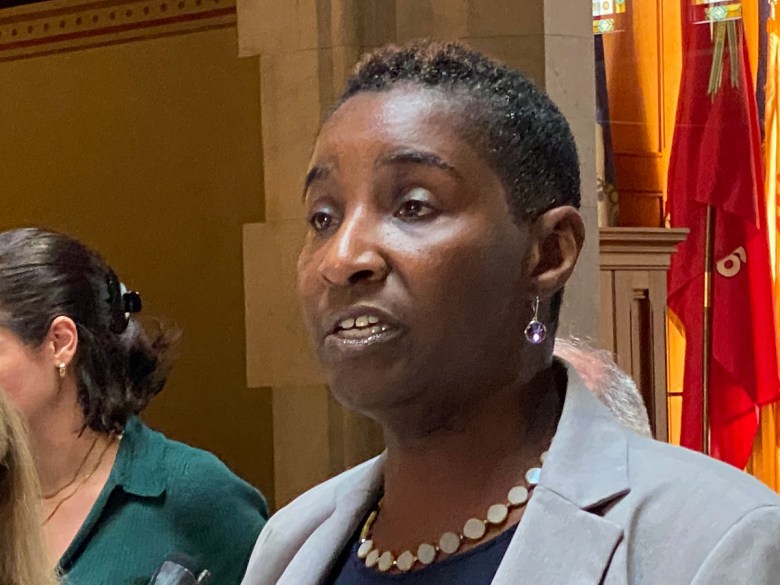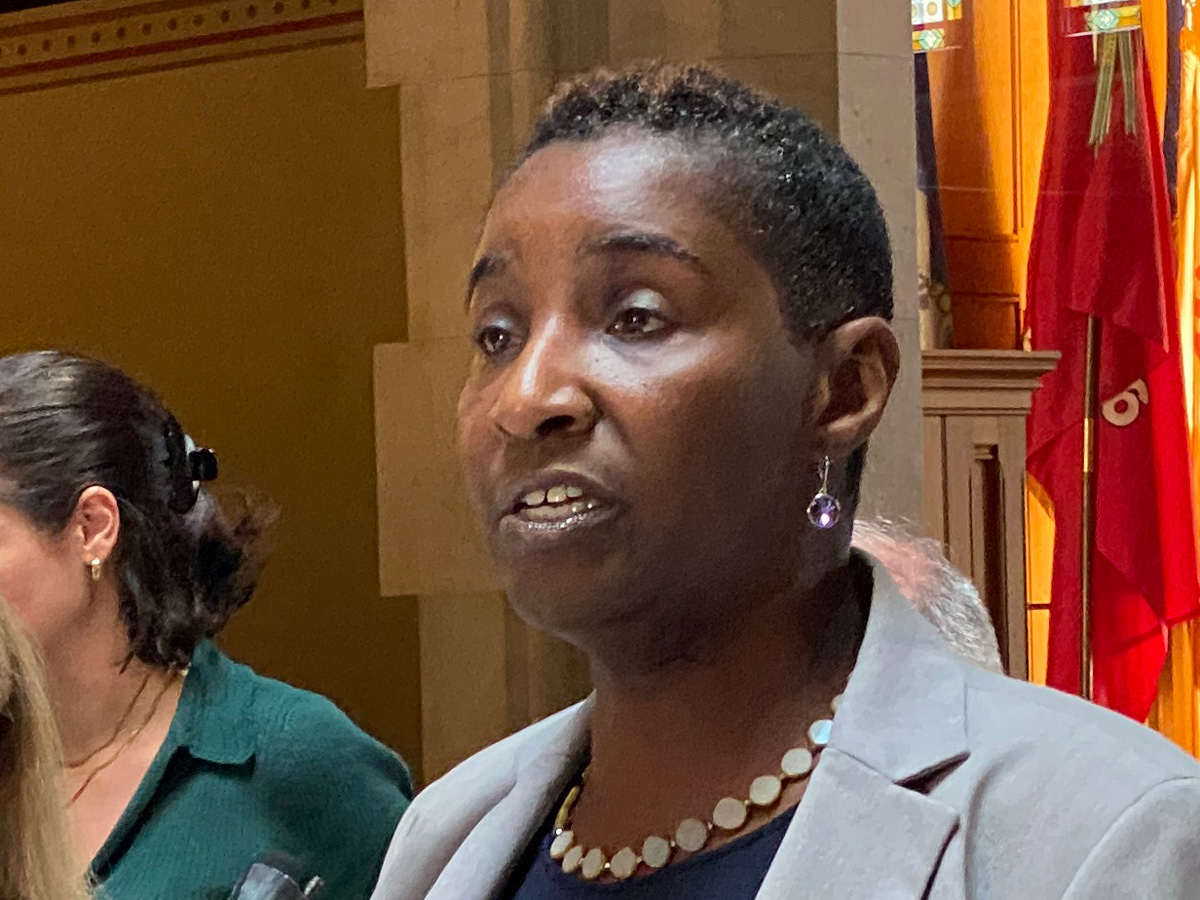 Social Services Commissioner Andrea Barton Reeves. Credit: Doug Hardy / CTNewsJunkie
Social Services Commissioner Andrea Barton Reeves. Credit: Doug Hardy / CTNewsJunkie
HARTFORD, CT — As the Trump administration continues to overhaul federal spending and disbursements to the states, Connecticut officials are stuck in a holding pattern, trying to make their dollars stretch further.
The appropriations, human services and public health committees convened at the Legislative Office Building last week to hear from commissioners of the Department of Mental Health and Addiction Services (DMHAS), Department of Children and Families (DCF), Department of Public Health (DPH), and the Department of Social Services (DSS) regarding their plans for the use of federal block grants in the upcoming fiscal year.
Nancy Navarrett, commissioner of DMHAS, called for flat funding a pair of grants the department oversees.
The substance use block grant provides funds to states to develop effective alcohol, tobacco and other drug use prevention treatment and recovery services.
The department also partners with DCF on the community mental health block grant, which funds mental health services for adults with serious mental illness. A portion also is shared with DCF to provide services for children with serious emotional disturbance.
“The funding this block grant provides is extremely important to community-based providers across the state as they work to support our shared mission of developing community-oriented, cost-effective services that allow individuals to be served in the least restrictive and most appropriate setting available,” Navarretta said.
Public Health Commissioner Manisha Juthani said programming funded by the block grants would not be affected by the flat funding, but did say that the future of some of the funding remains in doubt.
The preventative health and health services block grant supports chronic disease prevention in areas regarding asthma, cancer, cardiovascular disease, diabetes, smoking cessation, injury prevention, suicide prevention, and sexual assault crisis programs. Juthani said the funding is also used to support the Office of Policy and Strategic Initiatives. The allocation plan calls for flat funding in 2026, at a little over $2.4 million.
As its name suggests, the $4.8 million maternal and child health services block grant supports services that address critical maternal and child health needs. The funds are used to help ensure that high-risk pregnant women, children, and families across Connecticut receive services such as care coordination, screenings, and community-based support, Juthani said.
“In terms of the Preventative Health Services block grant, more than half of that grant goes directly to our local health departments to provide programming at the local level to support local prevention efforts, specifically on chronic disease prevention,” she said. “And that is particularly potentially vulnerable as we go forward. The president’s budget eliminates this block grant, so we will have to address that if that happens in the next federal fiscal year.”
Social Services Commissioner Andrea Barton Reeves said the community services block grant supports low-income individuals and families. The allocation plan calls for a budget of $9.2 million to support programs such as case management, energy assistance and weatherization, the Low Income Heating and Energy Assistance Program (LIHEAP), food and nutrition services, and housing and shelter programs.
Deputy Commissioner Peter Hadler described the social services block grant, which helps people achieve economic self-sufficiency and prevent or remedy neglect, abuse, or exploitation of vulnerable groups. The income eligibility for people served by the block grant is 150% of federal poverty guidelines, or about $48,000 annually for a family of four.
While the grant funding is expected to remain flat at $17.2 million, the DSS allocation plan calls for $19.2 million to be appropriated, using $2 million in one-time use carry forward funds. Reeves said the use of the carry forward funds was intended to “smooth the gap” as DSS transitions programing back to pre-pandemic levels of funding.
“We completely understand and appreciate that that means that there would be a reduction in the number of meals that we would be able to serve,” Reeves said, referring to DSS nutrition programs. “But we really don’t have any other resources at this point given our proposed allocation plan that we could substitute that for. So we did have to make the decision to move that back to the pre-pandemic dollars, as we have.”
